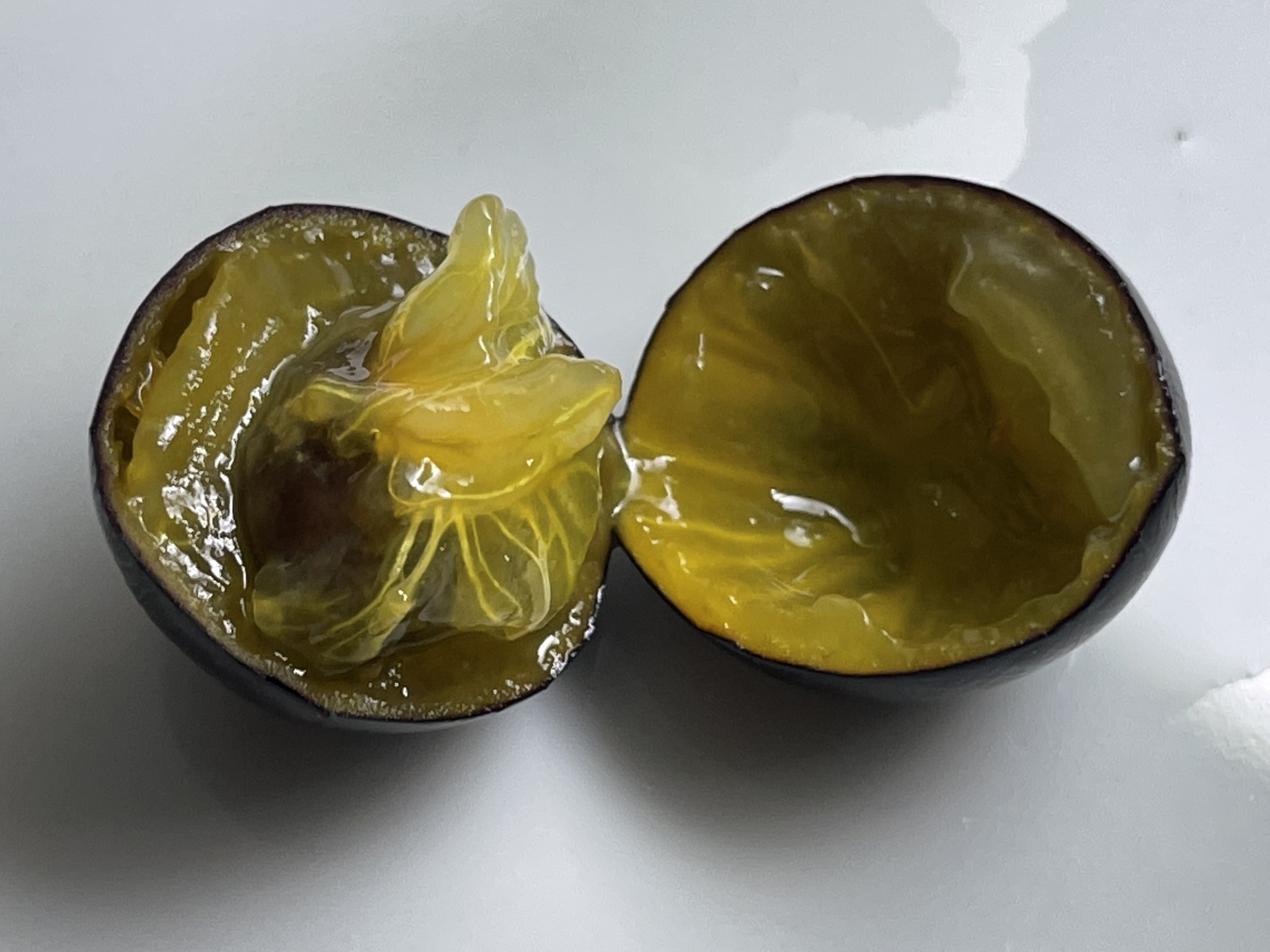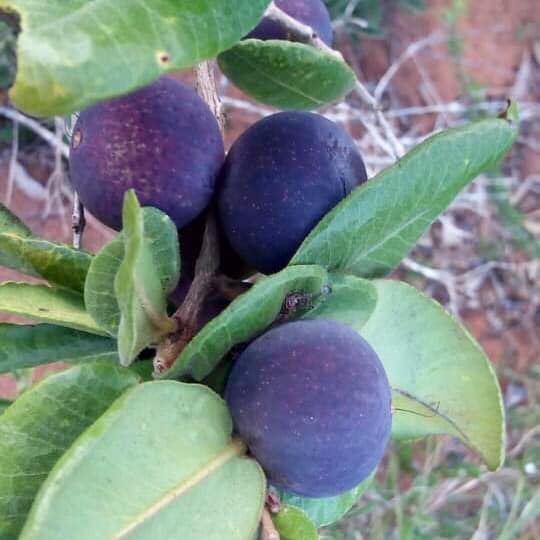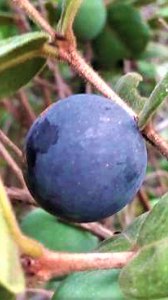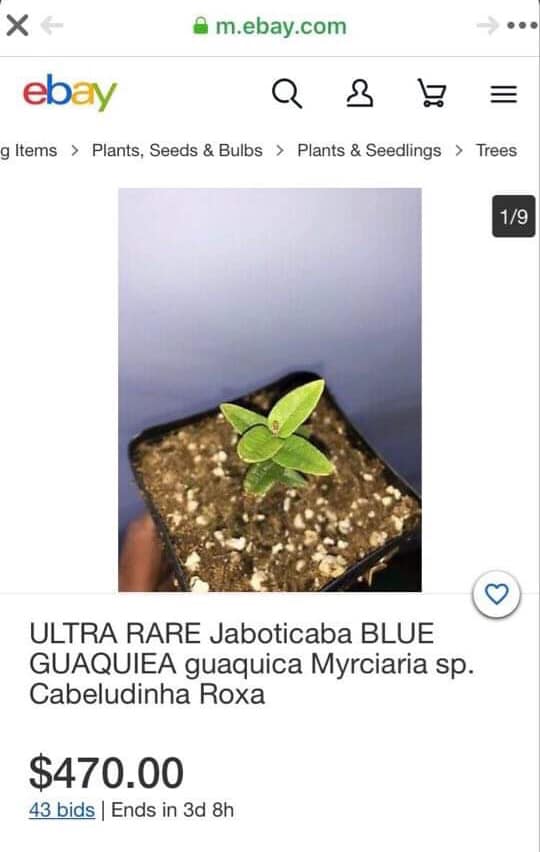Myrciaria caerulescens Nr. 1 - Roxa - Blue Guaquiea - 1 potted plant / 1 getopfte Pflanze












































Myrciaria caerulescens Nr. 1 - Roxa - Blue Guaquiea
Family / Familie: Myrtaceae
origin from / Herkunft: Brasilien
Climate / Klima: temperate to warm (10-25C / 50-77F) / gemäßigt bis warm (10-25C / 50-77F)
Taste / Geschmack: very good taste / sehr guter Geschmack
you buy / sie kaufen: 1 potted plant / 1 getopfte Pflanze
Delivery EU only
The demand for this Myrciaria has increased enormously after the first fruits were harvested by collectors and the taste was described as absolutely top.
We have decided to offer four more plants. Here is number 1.
Already potted - in the right, necessary substrate! One of the best tasting fruits on earth.
Just three years ago it was called Myrciaria sp roxa - Blue Guaquiea.
Last year it was given a scientific name and is now called Myrciaria caerulescens.
This Myrciaria tastes better than Jaboticaba!
It comes from the Campos rupestres region between 900 and 2000 meters.
There is a lot of wind there, dry, cold winters (up to 5 degrees) and humid summers with a lot of sunlight.
The soil is very nutrient-poor and shallow. The pH value is low.
We already have an adapted substrate in the pot here, with which we have had good experiences so far.
This Myrciaria bloomed in Germany after just one year and in other countries as well.
Please overwinter this plant at a minimum of 10 degrees, even if it can tolerate colder temperatures.
Die Nachfrage nach dieser Myrciaria ist enorm gestiegen, nachdem die ersten Früchte bei Sammlern geerntet wurden und der Geschmack als absolut top beschrieben wurde.
Wir haben uns entschlossen noch vier Pflanzen anzubieten. Hier ist die Nummer 1.
Bereits getopft - im richtigen, notwendigen Substrat! Eine der bestschmeckenden Früchte dieser Erde.
Noch vor drei Jahren nannte man sie Myrciaria sp roxa - Blue Guaquiea.
Im letzten Jahr hat sie dann einen wissenschaftlichen Namen bekommen und sie heißt jetzt Myrciaria caerulescens.
Diese Myrciaria schmeckt besser als Jaboticaba!
Sie stammt aus der Region Campos rupestres zwischen 900 und 2000 Meter.
Es gibt dort viel Wind, trockene, kalte Winter (bis 5 Grad) und feuchte Sommer mit hoher Sonneneinstrahlung.
Die Böden sind sehr nährstoffarm und flach. Der PH-Wert ist niedrig.
Wir haben hier bereits ein angepasstes Substrat im Topf, mit dem wir bisher gute Erfahrungen hatten.
Diese Myrciaria hat in Deutschland bereits nach einem Jahr geblüht und in anderen Ländern ebenfalls.
Überwintern dieser Pflanze bitte bei mindestens 10 Grad auch wenn sie es kälter verträgt.
